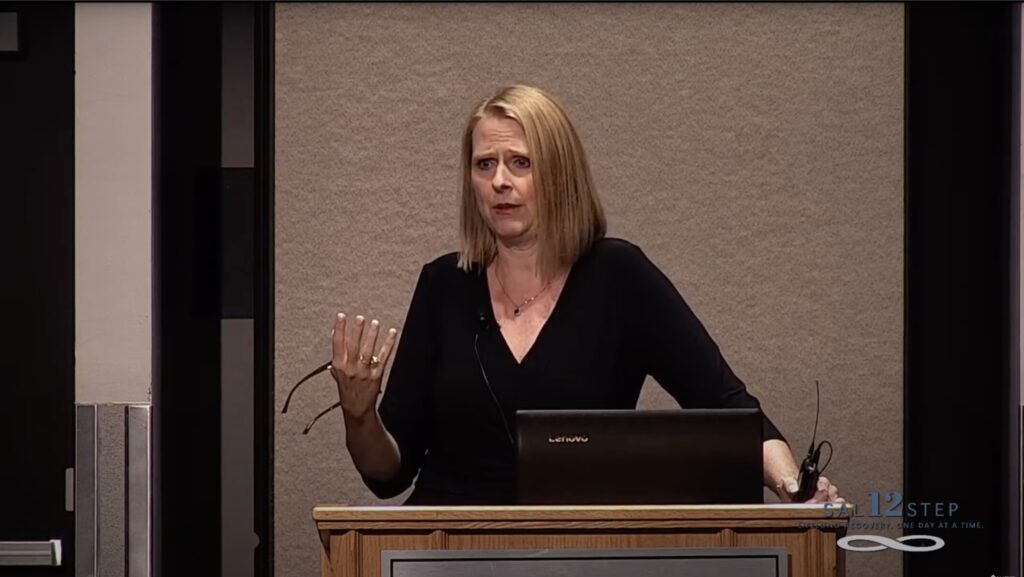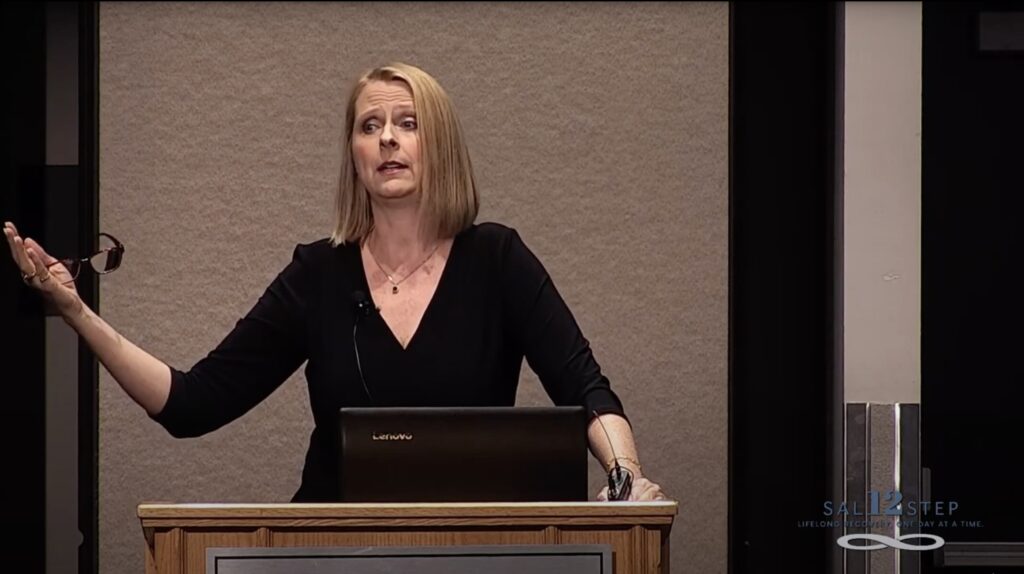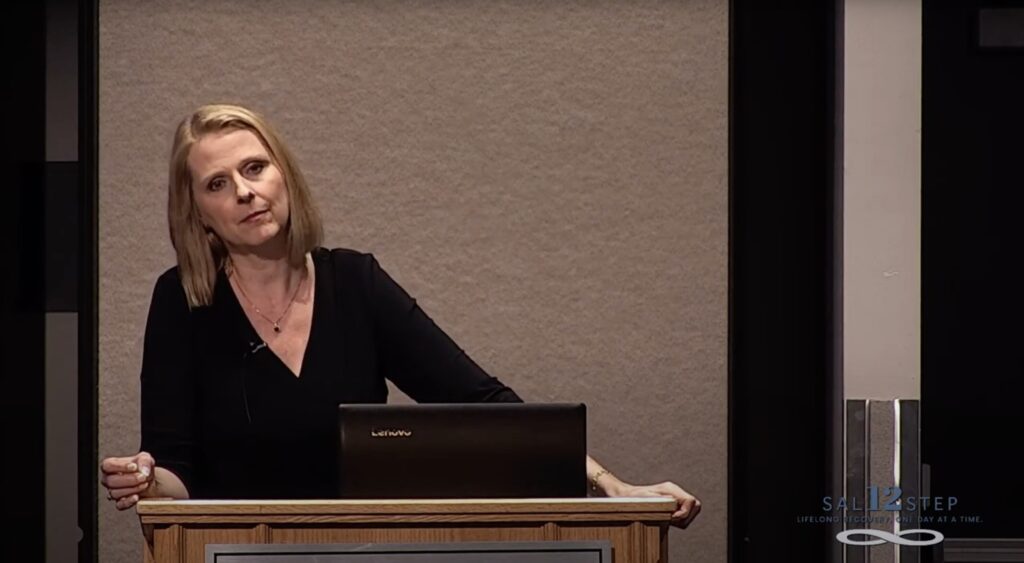NOTE: This blog post contains concepts and some quotes which were taken from a 2021 S.A. Lifeline conference presentation by Dr. Stefanie Carnes. Subscribe to the Digital Recovery Library to watch the entire presentation.



Understanding Betrayal Trauma
Betrayal trauma isn’t just a term; it’s an experience that shakes the very foundation of one’s trust and emotional security. Originally rooted in the study of child abuse, the concept has expanded to encompass the profound impact of infidelity and sex addiction on partners. This understanding shifts the narrative from labeling partners as codependent to recognizing their trauma responses as legitimate and serious.
Origins and Impact
The recognition of betrayal trauma in the context of the partner of a sex addict has shifted the perspective from codependency to understanding the profound impact of betrayal on partners, who often exhibit symptoms akin to PTSD.
Partners experiencing betrayal trauma may exhibit various symptoms which make daily life challenging such as:
- Emotional instability
- Hypervigilance and safety-seeking behaviors
- Intrusive thinking and nightmares
- Difficulty concentrating
- Damaged self-esteem
- Health problems, including headaches, gastrointestinal issues, and autoimmune disorders.
These symptoms are normal responses to trauma and should be approached with compassion and understanding rather than pathologizing the partner’s behavior.
The Pain of Staggered Disclosure
The Process and Its Impact
Staggered disclosure, where addicts gradually reveal their actions over time, can significantly increase the trauma for partners. This process, often driven by the addict’s fear of the partner’s response, results in repeated breaches of trust. The deception, often more painful than the betrayal itself, creates a cycle of “death by a million cuts,” making the restoration of trust a long and challenging process. This slow drip of painful truths makes rebuilding trust a painstaking journey.
Strategy for Trust Restoration
Restoring trust after sexual betrayal is a challenging journey that requires consistent, reliable behavior over a long period. Dr. Stefanie Carnes emphasizes that the only way to rebuild trust is through “reliable behavior over time. You have to suit up, show up, be where you say you’re going to be, do what you say you’re going to do. Be impeccable with your word.” This consistency must be sustained to demonstrate commitment and earn back trust.
Therapeutic Disclosure
Therapists can play a crucial role in guiding couples through the disclosure process. Ideally, disclosures should be facilitated by a qualified therapist to minimize trauma for both parties. Even with professional guidance, disclosures can be an unfolding process, as remnants of a secret life may surface over time. For example, a partner might overhear new information in casual conversations, which can feel like a fresh wound despite previous efforts at complete disclosure.
Having a strong support system is vital for both partners and addicts. Partners should be selective about whom they share their experiences with, seeking out supportive and non-judgmental individuals. Building this network is essential for both emotional and practical support during the recovery process.
Attachment Ambivalence and Healing
Understanding Attachment Ambivalence
Partners often experience attachment ambivalence, a push-and-pull dynamic where they seek comfort from the very person who caused their distress. This ambivalence is a natural response to the trauma and creates significant distress in the coupleship. For couples therapists, the goal is to re-establish the attachment connection, helping partners navigate their feelings of fear and the desire for connection.
Factors Increasing Trauma
Several factors can exacerbate the trauma experienced by partners, including:
- Length and amount of deception
- Type of acting out (e.g., offending behavior)
- Direct exposure to the betrayal
- Public embarrassment
- Impact on children and financial devastation
- Amount of gaslighting
- Lack of a supportive system.
Building a strong support system and choosing the right therapist are critical steps in managing this trauma.
Healing Takes Work
During the Q & A, Dr. Carnes was asked the following question, “My husband’s very, ‘I’m not going to a group. I’m not doing the 12 step program. I’m not doing any of that. I’m working with the Lord. I’ve turned it all over to the Lord and I can do it on my own.’ Now he’s 70 years old and you know, we’ve been married for 40 years. Is that possible?”
Dr. Carnes reply was that, “I’m never one to say something is impossible, but I will say that we have a term for that in our field that clinicians often use and they call it ‘spiritual bypass.’ That the Lord is just going to take this away from me. So in, in my opinion, the Lord can move mountains, but you better bring a shovel, right?
So it’s like, you have to do the work if you’re going to get to the depth of it. There is magic that happens in the group process. Cutting edge treatment for sex addiction is group therapy because you guys can give each other so much more than what a therapist can give you and what you can learn alone.”

HOPE In Recovery
Recovery from sexual betrayal is undeniably difficult, but it is also a journey filled with potential for profound healing and growth. While the path to rebuilding trust is long and requires unwavering commitment, it is possible. With consistent effort, honesty, and support, couples can navigate through the pain, repair their bonds, and emerge stronger. The road to recovery is paved with challenges, but also with opportunities for renewed connection, deeper understanding, and lasting love.
Subscribe to the Digital Recovery Library to watch the entire presentation.
*Need more support? Find a FREE SAL 12-Step meeting today.*
The next S.A. Lifeline Conference is coming up in September! Find hope. Find healing. Come heal with us.







